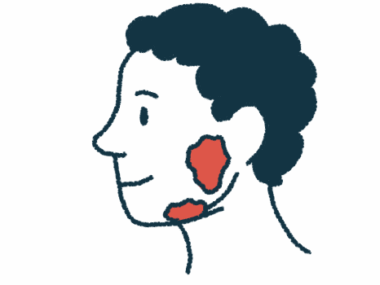Strongbridge Secures Third US Patent for Recorlev
Written by |

The U.S. Patent and Trademark Office has issued a new patent to Strongbridge Biopharma that covers a method of using Recorlev (levoketoconazole), the company’s investigational treatment for endogenous Cushing’s syndrome, to treat people with Cushing’s who also are taking metformin for type 2 diabetes.
According to a company press release, the new patent (No. 11,020,393) “Methods of Treating Disease with Levoketoconazole,” will expire March 2, 2040.
This is the third U.S. patent related to Recorlev that Strongbridge has secured. The first patent (No. 9,198,906), covered the use of Recorlev to reduce inflammation; it will expire at the end of 2030. The second patent (No. 9,918,984), which covers methods of treating Cushing’s syndrome, will expire in early 2026.
Cushing’s syndrome comprises a group of conditions characterized by abnormally high levels of the stress-associated hormone cortisol. Cushing’s disease is a specific type of Cushing’s syndrome, in which elevated cortisol levels are caused by a tumor in the brain’s pituitary gland.
Overabundance of cortisol can have several effects on the body, including triggering the development of diabetes. Metformin, sold under several brand names, including Glucophage, Riomet, and Glumetza, is a medication commonly used to help treat diabetes by regulating blood sugar levels.
Recorlev is an oral medication that is designed to block the production of cortisol in the adrenal glands, which sit atop the kidneys and are primarily responsible for making the hormone in the body.
The U.S. Food and Drug Administration (FDA) is currently reviewing an application from Strongbridge that seeks the approval of Recorlev as a treatment for endogenous Cushing’s syndrome. A decision from the FDA is expected by the start of next year.
Strongbridge’s application was supported primarily by data from two Phase 3 clinical trials, one called SONICS (NCT01838551) and another called LOGICS (NCT03277690).
In SONICS, which enrolled and treated 94 people with endogenous Cushing’s, nearly a third of participants had cortisol levels within normal ranges after six months of treatment with Recorlev, without requiring any dose increments during that period.
Results from LOGICS, which enrolled participants from SONICS as well as additional patients, demonstrated that withdrawing the investigational treatment caused cortisol levels to rise in the participants’ urine.
Data from SONICS and LOGICS also indicated that Recorlev can help control diabetes, ease symptoms, lower cholesterol levels and body fat, lessen depression, and improve quality of life in people with endogenous Cushing’s.
Strongbridge recently announced it will merge with Xeris Pharmaceuticals to form a new entity called Xeris Biopharma Holdings.





